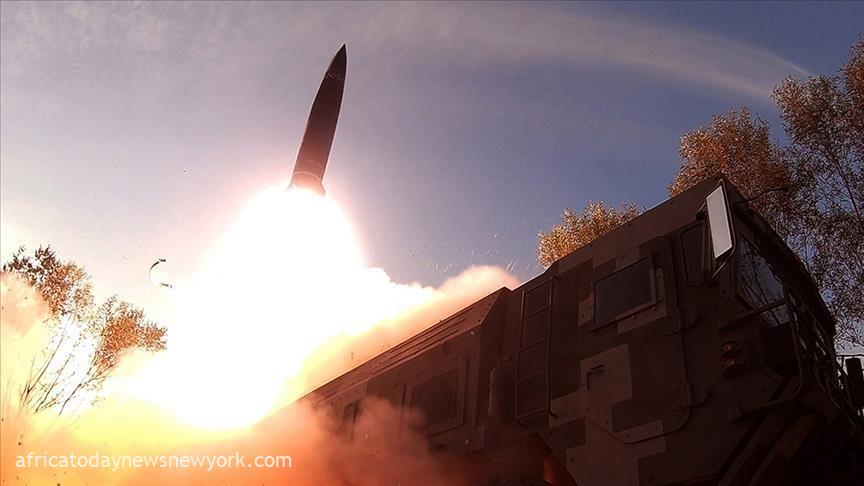North Korea on Wednesday fired a suspected long-range ballistic missile off its eastern coast, officials in neighbouring South Korea and Japan have stated, with Tokyo lodging a ‘stern protest’ over the launch.
South Korea’s Joint Chiefs of Staff asserted it had ‘detected what was presumed to be a long-range ballistic missile fired from the Pyongyang area around 1000 (01:00 GMT)’.
Japan’s coast guard and defence ministry also detected the weapon, with Chief Cabinet Secretary Hirokazu Matsuno revealing that it flew for about 74 minutes, reaching an altitude of 6,000 km (3,728 miles), in what would be the longest ever flight time for a North Korean missile.
The coast guard disclosed that it fell into the sea east of the Korean peninsula.
North Korea has stepped up its sabre-rattling this week, with Kim Yo Jong, the powerful sister of leader Kim Jong Un, condemning a United States plan to deploy a nuclear missile submarine to waters near the Korean peninsula and threatening to shoot down spy planes after claiming US reconnaissance planes recently violated its air space.
Read Also: Tension As North Korea Fires ‘New Type’ Ballistic Missile
Leif-Eric Easley, a professor at Ewha University in Seoul, said the comments were ‘part of a North Korean pattern of inflating external threats to rally domestic support and justify weapons tests.
‘Pyongyang also times its shows of force to disrupt what it perceives as diplomatic coordination against it, in this case, South Korea and Japan’s leaders meeting during the NATO summit,’ he said in an email.
Japan’s Matsuno described the launch as a ‘serious provocation’ in breach of United Nations sanctions and said a ‘stern protest’ had been lodged through diplomatic channels in Beijing.
Japanese Prime Minister Fumio Kishida is expected to meet South Korean President Yoon Suk-yeol in Vilnius, the Lithuanian capital, later on Wednesday.
Matsuno said a summit was also planned involving the two countries, Australia and New Zealand.
‘We will respond in close cooperation with the international community,’ he told a news conference.
Pyongyang has carried out successive weapons tests as it looks to modernise its military. This year, it launched its first-ever solid-fuel intercontinental ballistic missile (ICBM) and tried to put its first military spy satellite into orbit. That effort was a failure but officials have promised to try again.
North Korea is banned from using ballistic missile technology, including for satellite launches, under UN sanctions imposed over its nuclear weapons programmes.
South Korea and the US are due to start major annual joint military exercises, known as Ulchi Freedom Shield, next month.
North Korea regards such exercises as rehearsals for invasion, claiming its military activities are a necessary response.

